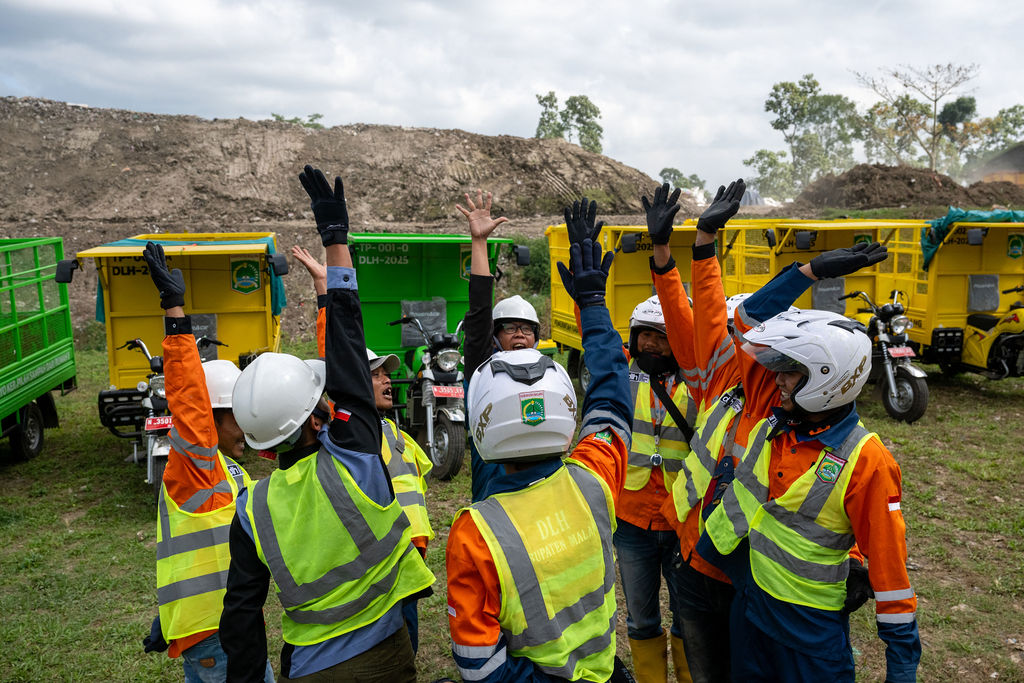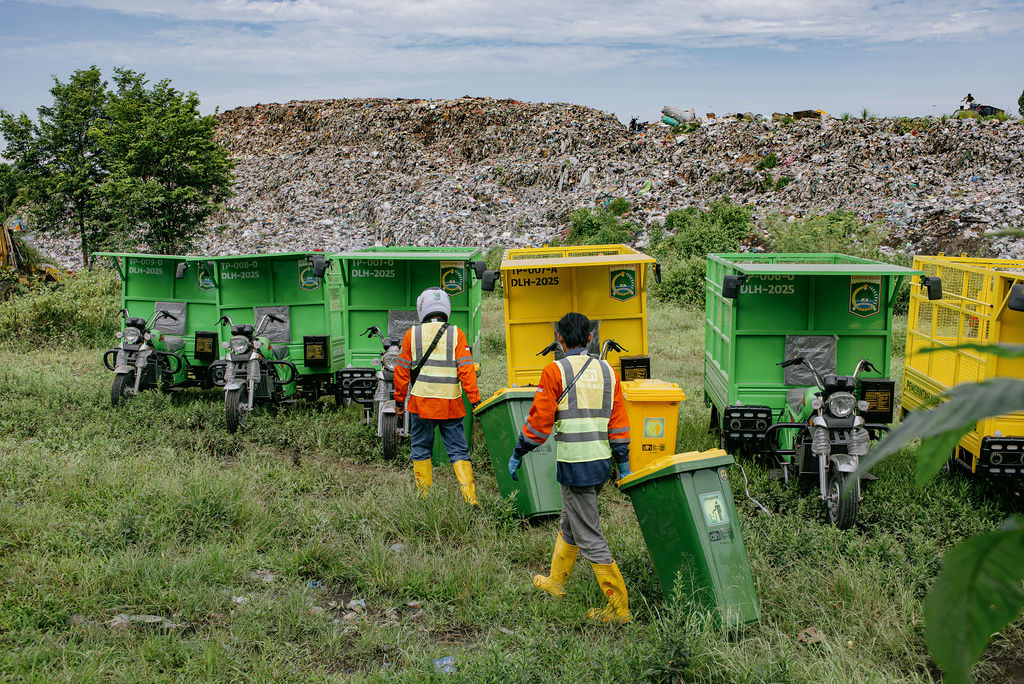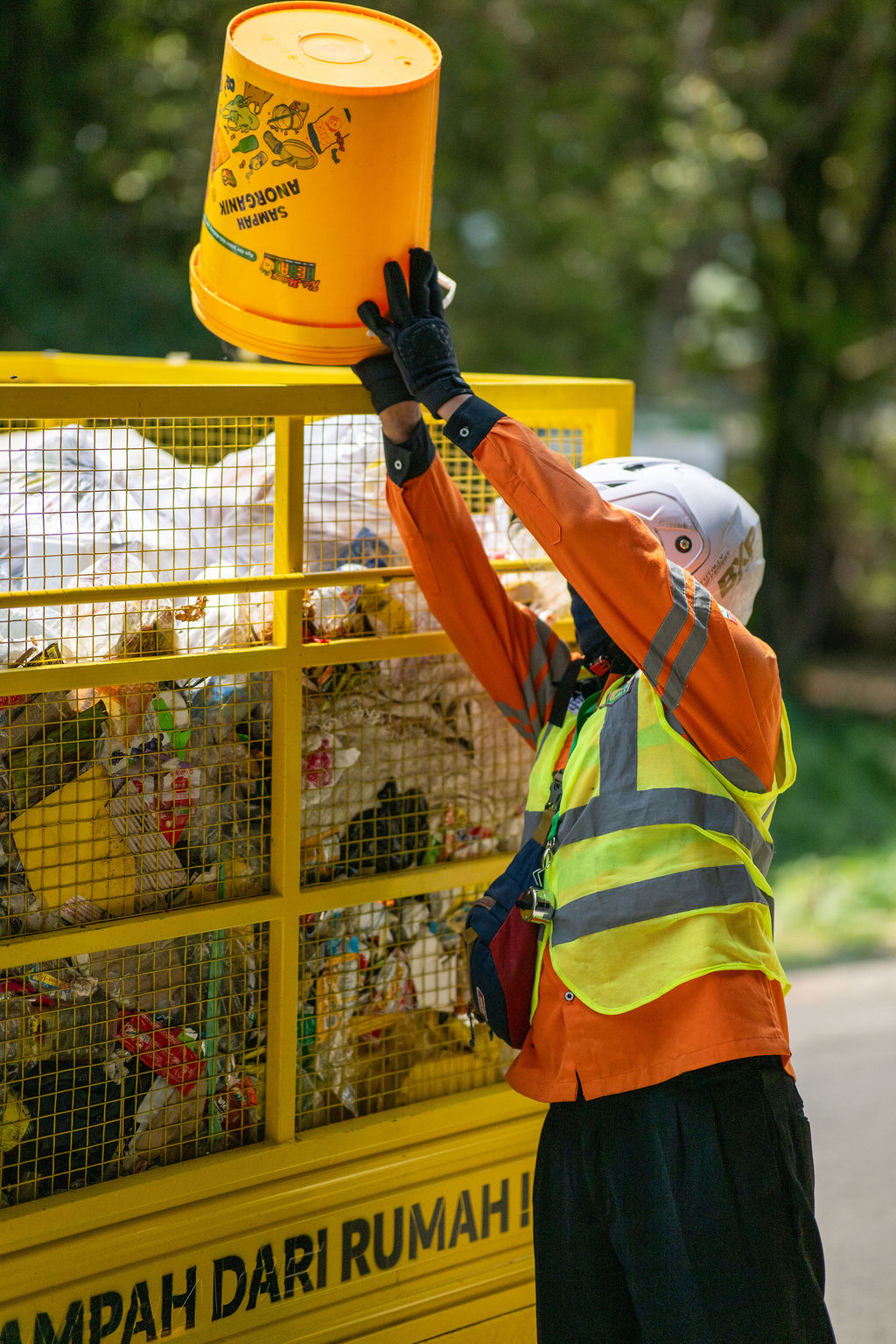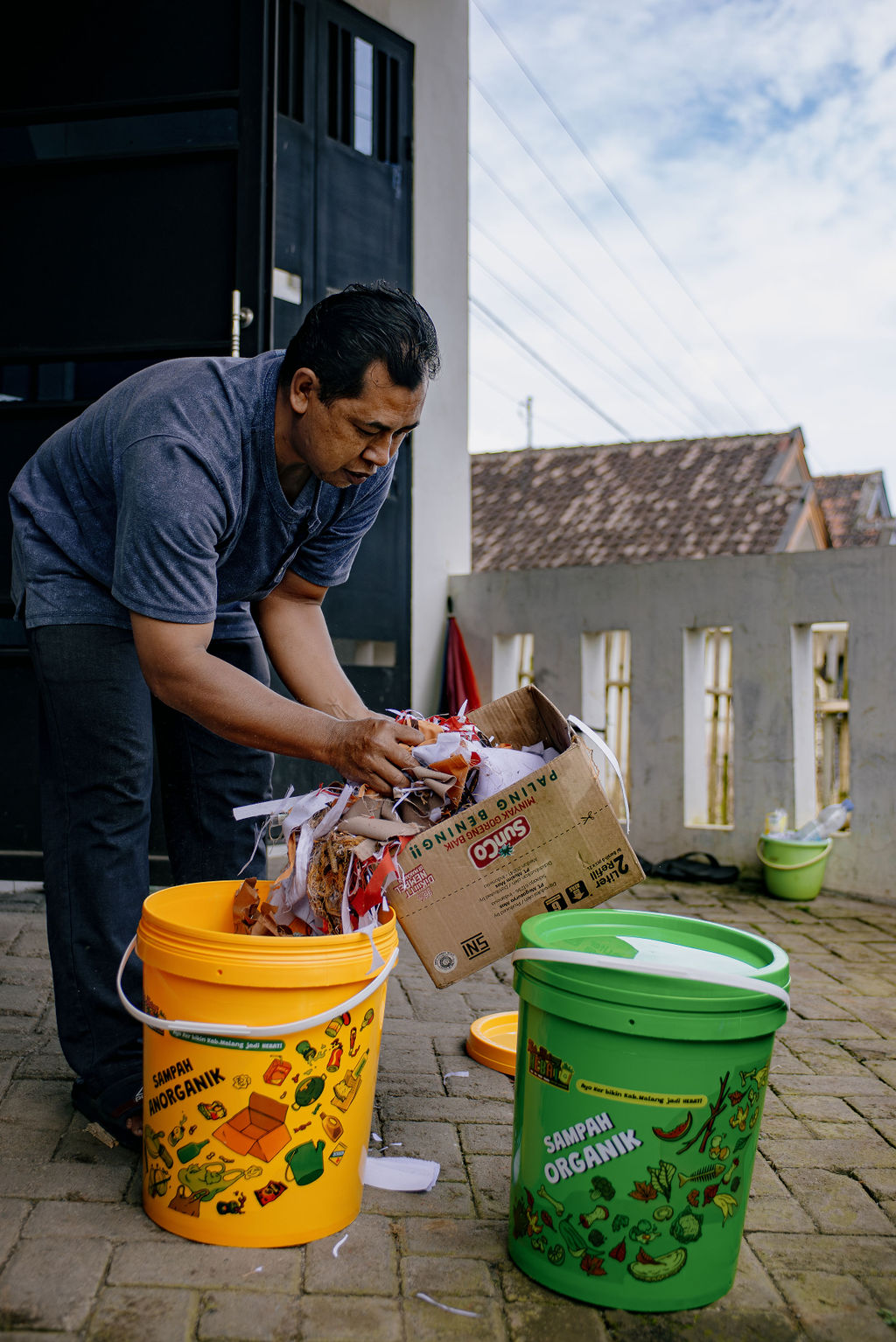
Trialling end-to-end waste management in East Java
In the Malang Regency, government bodies, NGOs, village heads, and local residents are working together to pilot an end-to-end waste management system. This programme involves household sorting, with door-to-door collection, encouraging communities to manage organic and inorganic waste at the source.
Every year, Indonesia produces 3.2 million tonnes of unmanaged plastic waste, according to the UN, and more than one-third of it ends up in the ocean. Ensuring that this waste does not enter the environment and extracting value from it requires a step up in waste management infrastructure supported by sustainable business models.
The Alliance developed an integrated waste management project in the Malang Regency in East Java and is currently running a pilot. The project covers household collection, safe disposal, and recycling. The Alliance provides technical support to the project and funding for infrastructure development and equipment, such as waste collection vehicles, while the regency government will provide the land for construction, the workforce for the integrated system to run, and will cover the operating costs of the system.

Typically, plastic accounts for 15 to 20 per cent of municipal solid waste, and once this has been sorted, the recyclable plastic along with other recyclable materials can then be sold to local recyclers. This generates revenue for the waste management system. The other stream of revenue comes from household waste collection fees. For domestic waste, one key aspect is for householders to see benefit in paying these fees rather than burning or dumping the waste in the environment.
"Although it is still in its early stages, the project is already reshaping residents' approach to waste disposal. Instead of the original tendency to throw their garbage into the gutter, at the side of the house, or even the wider neighbourhood area in general, this behaviour has changed... it has now started to decrease." MULYO SISWANTO, Village Head, Duwet Krajan Village
In collaboration with the regency’s Department of Environment, the Alliance has embarked on a behaviour change campaign to educate residents about these benefits, encouraging them to sort the household waste into organic and nonorganic fractions to enable more efficient downstream sorting.
This paves the way for a Badan Layanan Umum Daerah (BLUD), a public utility that will be able to sell the different sorted fractions of waste collected from the regency’s households. The funds from the sale of these recyclables and waste collection fees can be used to drive longerterm sustainability of the integrated waste management system.

The trial in Malang was launched on 17 March 2025 in four villages (Tulus Besar, Duwet Krajan, Wringin Anom, and Kenongo), and 2,300 households had pre-registered to take part in it. Residents participating in the pilot will have their household waste collected twice every week.
This is just the beginning. The pilot should reach up to 12 villages, or around 18,000 households. Economic modelling shows that 80 per cent of the households in the covered area must take part for the pilot to succeed.

By providing the waste collection and sorting of household waste, the project will be creating 75 jobs. Once fully operational, the team expects that the scheme will collect 750 tonnes of municipal waste per month and recycle around 20 tonnes of plastic.
The Malang Regency project hopes to highlight how government, private sector, and communities can collaborate to effect systems-level change. It offers the residents of Malang a viable alternative to dumping and burning their waste, reducing pollution.
If successful, the regency hopes to develop a sustainable model that other regencies can replicate.
Stay in the loop
Subscribe to our newsletter for the latest news and updates from the Alliance







